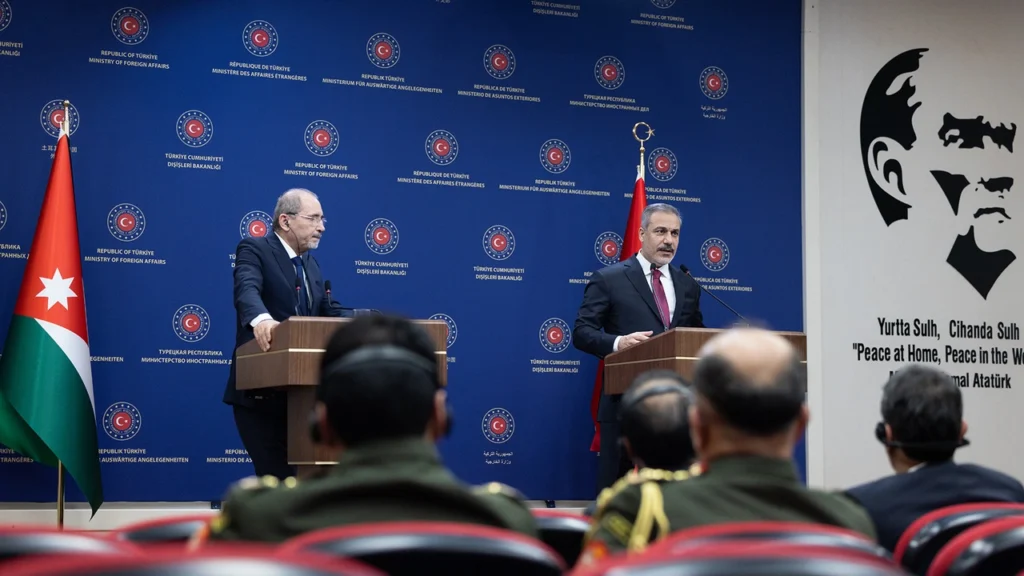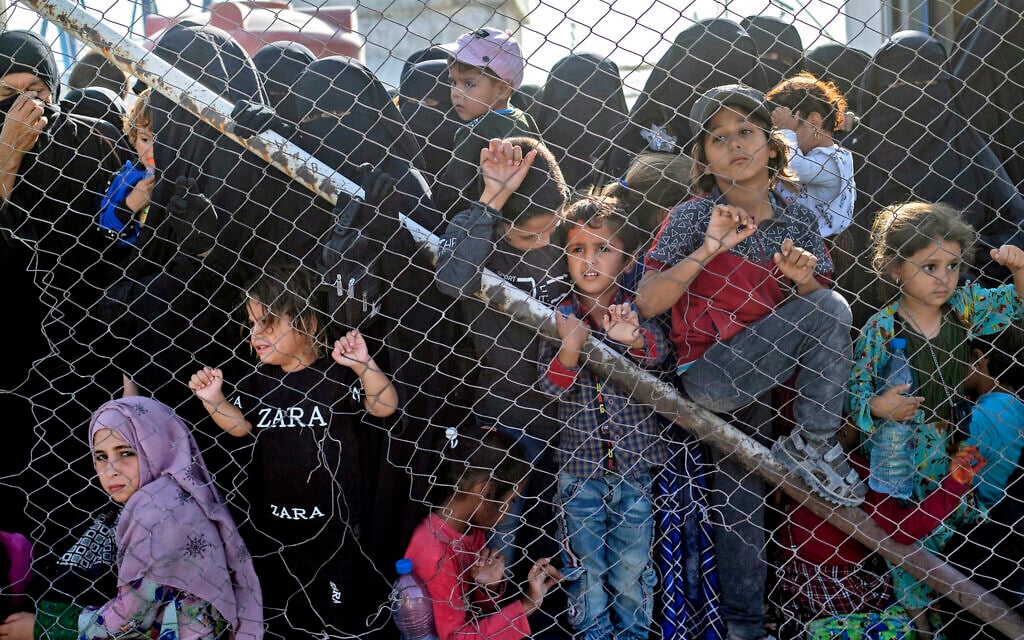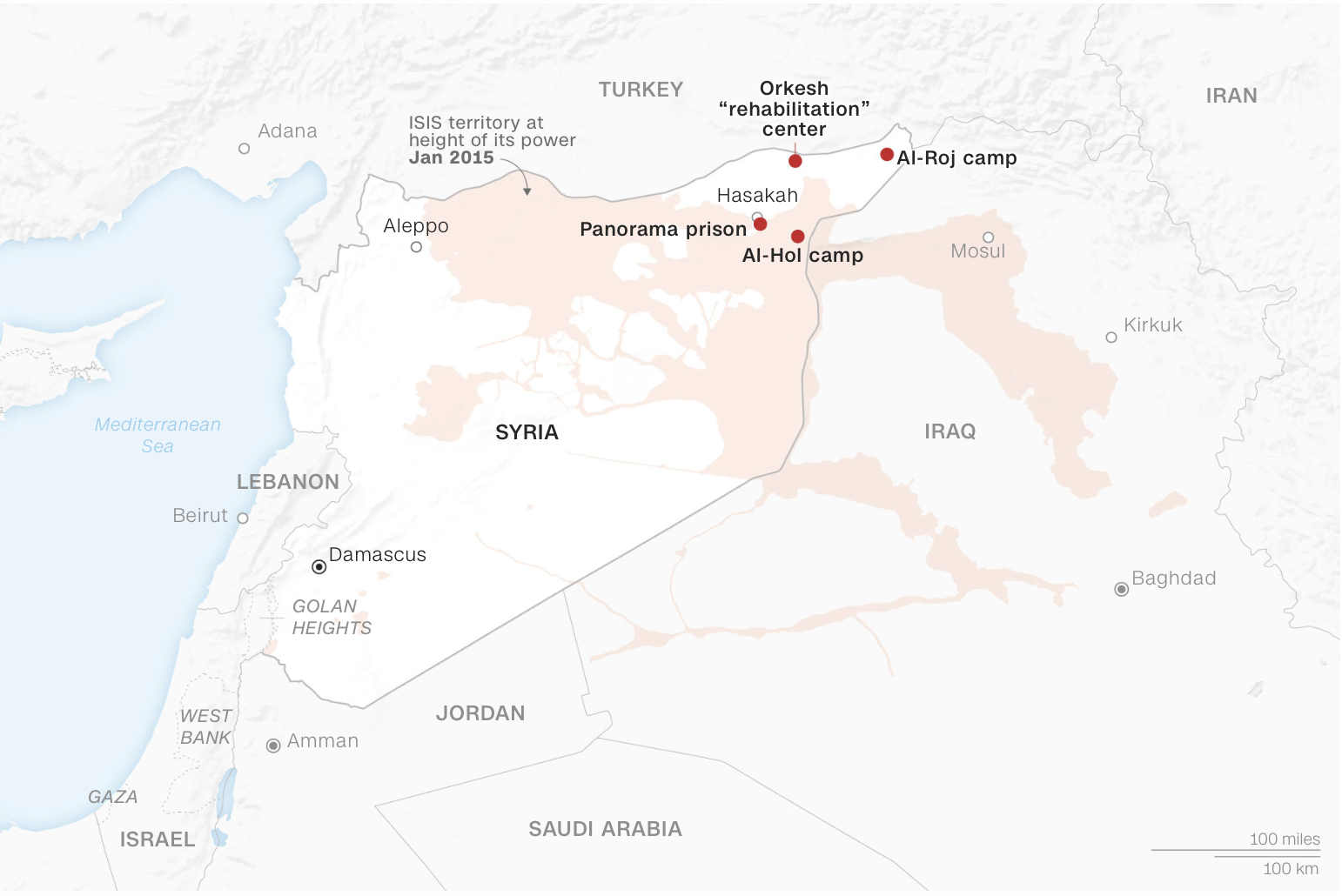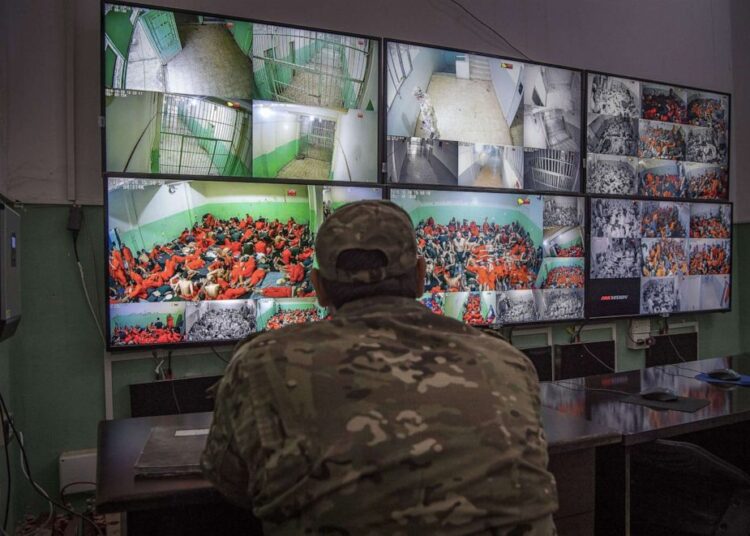Levent Kenez/Stockholm
Ankara is pressing ahead with its insistence on reducing the influence of Kurdish groups it considers adversarial by proposing a transfer of control over camps and prisons holding Islamic State in Iraq and Syria (ISIS) militants or their family members located in Kurdish-held areas of Syria to the new administration led by Hayat Tahrir al-Sham (HTS), which ousted President Bashar al-Assad on December 8. Should such a handover fail to materialize, Turkey is signaling its readiness to step in directly. This move is seen as part of a broader strategy aimed at curtailing Kurdish autonomy in the region and ensuring greater Turkish influence over key security matters in northern Syria.
On January 3, following his meeting with Belgian Foreign Minister Bernard Quintin, Turkish Foreign Minister Hakan Fidan stated, “The Syrian government must take over the responsibility for the security of the camps and prisons as soon as possible. If that doesn’t happen, Turkey stands ready to provide any necessary support.”

Three days later, on January 6, after meeting with Jordanian Foreign Minister Ayman Safadi, Fidan reiterated Turkey’s position, emphasizing that the issue at hand concerns the management and oversight of the prisons and camps. He said detainees in the Al-Hol camp as well as ISIS members held in other facilities could be subjected to stricter supervision. Fidan emphasized that appropriate conditions for camps and prisons holding ISIS militants and their families could be established by the new administration in Syria and reiterated that Turkey remains ready to offer assistance in this process if HTS cannot do so. Fidan stressed that Turkey is closely monitoring the situation and stands prepared to take action to counter any moves that it opposes by the actors involved.
Since the change in Syria’s governance, Turkey has consistently emphasized the need for Western countries to take responsibility for their citizens affiliated with ISIS, currently detained in camps and prisons across Syria. Ankara has insisted that these prisons and camps be transferred from the control of the Syrian Democratic Forces (SDF), which is largely composed of the Kurdish People’s Protection Units (YPG), a group that Turkey designates as a terrorist organization. According to Turkey, the YPG is the Syrian branch of the outlawed Kurdistan Workers’ Party (PKK), a group that Turkey has fought against for years.

In a live interview with NTV on December 13, Fidan repeatedly stressed that European countries must repatriate their nationals, including the thousands of men, women and children who are currently held in camps controlled by the SDF in Syria.
According to Amnesty International, more than 11,500 men, 14,500 women and 30,000 children are held in at least 27 detention facilities and two major camps, Al-Hol and Roj, in northeastern Syria. Fidan criticized European nations for their inaction, calling it “hypocrisy” and “opportunism” for allowing the PKK, through the SDF, to manage the camps and act as jailers. He emphasized that whether there are 10, 20 or 50 ISIS-affiliated individuals, European countries must repatriate them. He further argued that Iraq and Syria must also take responsibility for their nationals, while an international or regional mechanism could be developed for other detainees.
However, Turkey’s record regarding ISIS members within its own borders raises concerns. Despite the fact that Turkish authorities, including the police and judiciary under the government of President Recep Tayyip Erdogan, detained and arrested numerous ISIS suspects, few have been convicted, resulting in the release of the majority of them over a long period of time. Recent reports in the Turkish media suggest that new releases in December may be linked to demands and negotiations with HTS, a group composed of former al-Qaeda and ISIS fighters that ousted Bashar al-Assad in Syria.

Nordic Monitor reported on December 24, 2024 that in many instances, ISIS suspects accused of serious terrorism-related crimes have been freed due to an alleged “lack of evidence” or delays in legal procedures. Additionally, some convicted individuals have had their sentences overturned on appeal.
Turkey’s record in dealing with foreign fighters is also far from exemplary. During the rapid expansion of ISIS in Iraq and Syria after 2014, many foreign fighters entered Syria through Turkey. At the time, Turkey directly supported the ousting of Assad’s regime and sought to suppress Kurdish forces, aligning with some of ISIS’s broader objectives. However, as ISIS was defeated by SDF forces and international pressure mounted, Turkey was forced to adjust its policies.
Turkey’s handling of foreign jihadists at home also raised concerns internationally. In 2022 Turkey’s Directorate General of Migration Management issued a rare statement providing statistics on the deportation of “foreign terrorist fighters” from the country. While the directorate did not specify any affiliation with an organization, it is widely believed that most of them were jihadist militants who had traveled to Syria to fight.
The statement issued by the directorate general, part of the Ministry of the Interior, included wording that appeared to target the US and the EU. According to their figures, a total of 9,000 foreign terrorist fighters from 102 countries have been deported since 2011. Among them, 1,168 were from the US and EU countries, as part of Turkey’s security efforts both within its borders and across them. However, the exact number of 9,000 deportees raised some questions about the accuracy of the statistics.












